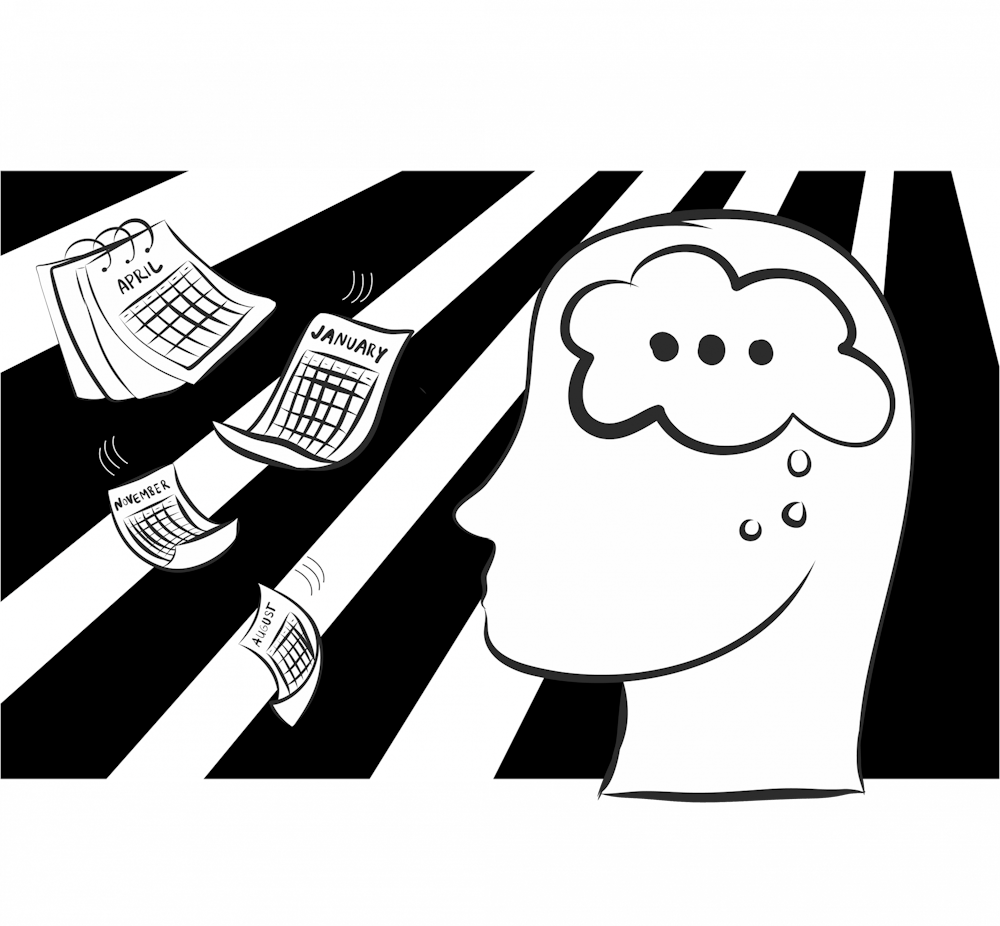
It’s midterm season. For some, this week marks the end of the first set of many exams; for others, it marks the beginning. For many of us, however, mid-February is the first time in the semester that we really hit the books in earnest. It’s the time of year when the pendulum in Penn’s “work hard, play hard” culture swings toward work.
Group study rooms in Van Pelt Library and Huntsman Hall are occupied until the early hours of the morning, and it’s not uncommon for some to spend an entire day at a library working, fueled only by Red Bull. A strong work ethic is undeniably etched into Penn’s culture, but this is by no means a bad thing — the effort that we put into our work is an admirable and crucial part of success. In fact, our own Angela Duckworth insists that “talent counts, but effort, in my view, counts twice.”
This culture, of course, has its drawbacks. In 2015, Penn was ranked the 10th most stressful college in America by College Magazine, and Adam Grant, one of Penn’s highest-rated professors, has contended that our hyper-competitive culture is not only problematic, but worse than it is at many other schools. The culprit, Grant asserts, is our pre-professional culture.
At its core, pre-professionalism doesn't carry negative connotations. I disagree with the idea that it’s somehow wrong to want to pursue a career in medicine or consulting, but, like many others here, I am concerned with what pre-professionalism seems to represent at Penn: The careful curation of our academic and, to a certain degree, social lives around a career goal. While it can be argued that the extent to which Penn is pre-professional is exaggerated, it’s undeniable that pre-professionalism does play a part in Penn’s collective worldview.
And when that rampant pre-professionalism is combined with a devoted work ethic, the result is a student body that puts on the blinders and relentlessly pursues its goals without really stopping to ask the fundamental question: Why?
Why are you majoring in that field? Why are you pursuing that path? It’s easy to look around you and think that you ought to be doing something because that’s what everyone else is doing.
So I urge you to put the books down for a minute, step away from your laptop, and introspect. Consider what motivates you. Is it passion or interest? Is it a career prospect? Is it money?
My armchair theory is that motivation is a finite resource, something that can fuel your productivity until it runs out, tragically resulting in burnout, an issue plaguing an increasing number of young professionals and college students, including many here at Penn. It doesn’t really matter what motivates you, but to reduce stress and prevent burnout, it’s crucial to ensure that your motives are compelling and sustainable.
Spending the time to think about this now will force you to engage in critical thinking about your goals and values, and can teach you a lot about yourself. Maybe it’ll strengthen your faith in your choices and confirm that you’re on the right path. Or, maybe you’ll discover you’re unhappy and you need to switch gears. Either way, pausing and reconsidering your purpose gives you useful insight into your values, your goals, and your attitude toward them.
Of course, doing this too often can be detrimental. Questioning your values and goals too frequently causes indecision and can stall you on your path. If we jump ship the second something becomes difficult, we can find ourselves on many different trajectories yet going nowhere.
But burying our heads in the sand and powering through coursework, clubs, and extracurriculars without a second thought can contribute to a reckoning years down the road, perhaps long after it’s too late.
VARUN SARASWATHULA is a College sophomore from Herndon, V.A. studying the Biological Basis of Behavior and Healthcare Management. His email is vsaras@sas.upenn.edu.
The Daily Pennsylvanian is an independent, student-run newspaper. Please consider making a donation to support the coverage that shapes the University. Your generosity ensures a future of strong journalism at Penn.
Donate







